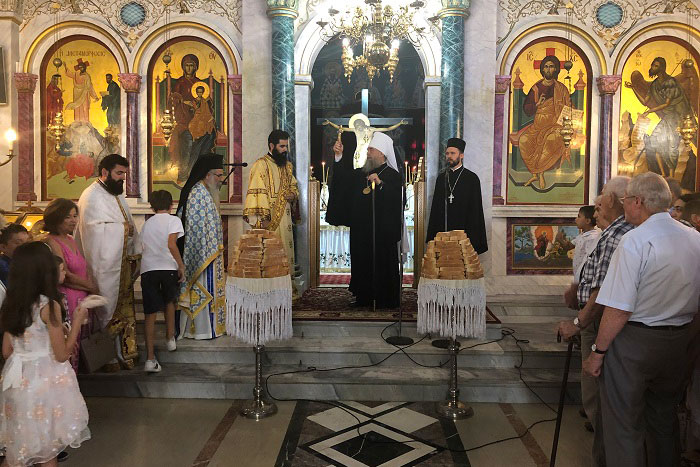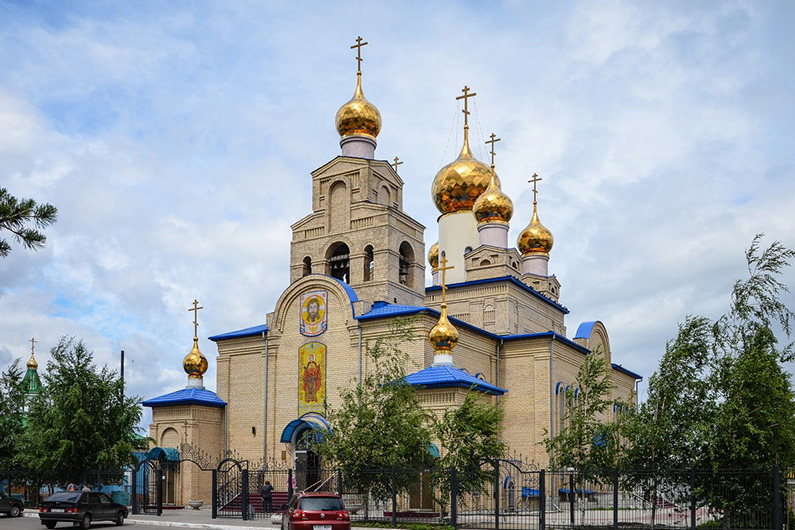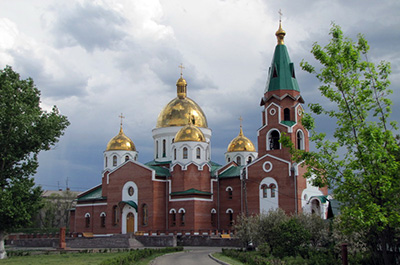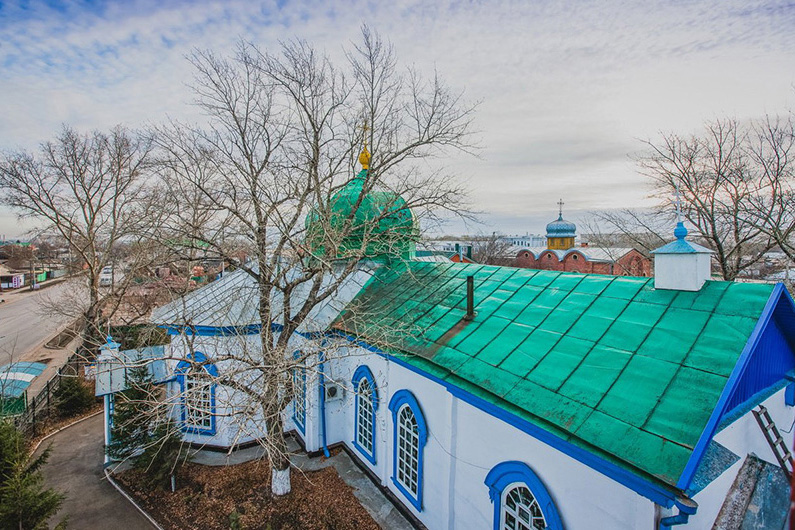
Bishop Gennady of Kaskelen took part in the International Conference “Discourses and Practices of Tradition”
- 02.03.2024, 14:01
- Новости на английском языке

February 29, 2024. Saint Petersburg. The International Scientific and Practical Conference “Discourses and Practices of Tradition” was held at the “Russia is My History” complex.
Representatives from Russia, Kazakhstan, Kyrgyzstan and Belarus took part in the scientific forum.
With the blessing of the Head of the Orthodox Church of Kazakhstan, Metropolitan Alexander of Astana and Kazakhstan, Bishop Gennady of Kaskelen, manager of the affairs of the Metropolitan District, spoke at the conference.
The chairman of the diocesan RECR, Archpriest Alexander Pelin, read out a welcoming address from Metropolitan Barsanuphius of St. Petersburg and Ladoga, which indicated that a conversation about tradition is not only and not so much a conversation about the past, but above all about the present and the future.
On behalf of the Pedagogical University, the participants were greeted by Vice-Rector Roman Sokolov, who emphasized the importance of the humanitarian component in the development of modern society and the relevance of theological and religious studies.
Words of greeting on behalf of the rector of St. Petersburg, Bishop Silouan of St. Petersburg, were read by Priest Dimitry Lushnikov. From the Scientific and Educational Theological Association (NOTA), the director of the Institute of Theology of St. Petersburg State University Dmitry Shmonin addressed the audience, pointing out the need to add value to educational theological knowledge and improve methods of teaching theology in general.
The manager of the affairs of the Metropolitan District in Kazakhstan, Bishop Gennady of Kaskelen, delivered the message “Orthodoxy in friendly Kazakhstan.”
In the speech of the Deputy Director of the Institute of Europe of the Russian Academy of Sciences, Professor Roman Lunkin, the problem of the relationship was analyzed in detail between tradition and new, including technological dimensions of reality.
Director of the Institute of History and Social Sciences of Herzen University Alexander Prilutsky focused on serious and persistent stereotypes in the scientific approach to tradition, on the need to distinguish between the concepts of “archaic” and “tradition”. It is also wrong to consider rural culture as the main bearer of tradition, which always loses to urban culture.
Director of the Ho Chi Minh Institute of St. Petersburg State University, Professor Vladimir Kolotov, in his speech, examined the experience of hacking tradition with the aim of deeply reformatting geocultural spaces. Thus, to reinvent traditional Buddhism during the Vietnam War, French intelligence introduced a new quasi-religion - “Caodaism” - into the minds of some military field commanders. It is with the help of new technologies of consciousness control that youth in Ukraine have been reforging for decades; there are attempts to use similar experience in Russia, which must be resisted.
Director of the Humanitarian Institute of Novgorod State University named after Yaroslav the Wise Daniil Krapchunov devoted his speech to analyzing the image of a dove in secular and sacred aspects. The dove is also known as the symbol of Veliky Novgorod.
The chief archivist of the Central State Archive of St. Petersburg, Mikhail Shkarovsky, analyzed the history of the tradition of venerating the holy prince Alexander Nevsky in the modern history of Russia. For centuries, Saint Prince Alexander Nevsky was one of the most revered saints. The tradition of venerating the prince in St. Petersburg was established by Peter the Great, transferring his relics from Vladimir to the new capital and in the coming years there were about thirty churches dedicated to him. The city toponymy is associated with Prince Alexander Nevsky, numerous competitions, awards, music and art festivals are held, the historical procession on the day of the transfer of the relics of the holy prince on September 12 has been revived.
The final report of the plenary part was made by Dmitry Golovushkin, professor of the Department of History of Religions and Theologies. He noted that the nature of tradition as included in modernity, not alien to it, has been scientifically proven. The ability of each individual person to assimilate and perceive tradition and determines its limits - this allows us to speak of tradition as a dynamic metasystem.
Work took place in three sections, a student round table was organized. In total, more than fifty reports and messages were made during the conference.
Based on materials from the website of the St. Petersburg Metropolitanate.





















